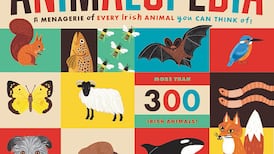

The Tree Hunters is a book with global aspirations. Thomas Pakenham traces the history of tree-collecting across the centuries – and the world, from the American northwest to the Himalayas to the south Pacific. The book is something of a sibling to Pakenham’s voluminous earlier writings on trees: but The Tree Hunters has other ambitions, seeking as it does to place the “cult” of the arboretum within the context of a wider history.
This quest simultaneously succeeds and fails. It succeeds in that we learn about the original homes of so many now-familiar trees – monkey puzzle, magnolia, black walnut – and discover the stories of the many explorers and patrons who took part in or funded tree-focused journeys of exploration. Packenham also details the development of horticultural institutions we now take entirely for granted: there is, for example, a gratifying focus on the evolution of the National Botanic Gardens in Glasnevin, which have not only survived but thrived while so many other arboretums have been swept away by the winds of history.
The Tree Hunters, however, fails to underscore an essential point: that the phenomenon of such tree “hunters” cannot be disentangled from the working of colonialism and capitalism – which commodified trees as so many other trades did their sources of profit, from the nutmeg to the human enslaved labourer.
To be sure, the book frames its stories within a wider colonial backdrop: impossible not to, when so many individual histories in this book were shaped and driven by British economic imperatives. But these backdrops are presented as the inevitable wallpaper to a Eurocentric history; and the gentlemen on their hunting trips seem like frolicking adventurers straight from a Boy’s Own story. These adventurers, however, created human, societal and environmental calamities that continue today – horrors barely glanced at in this book’s pages.
By contrast, Richard Shimell’s Trees in Winter is emotionally resonant and impactful. Shimell is a Welsh printmaker; this book – part memoir and part handsome catalogue of his work – details the development of his love for trees, and how this has not only influenced his art, but changed the course of his life.
Shimell’s writing is suffused with a queer sensibility, recognising as it does a world-altering distinction in ways of seeing – between what is and what yet might be.














